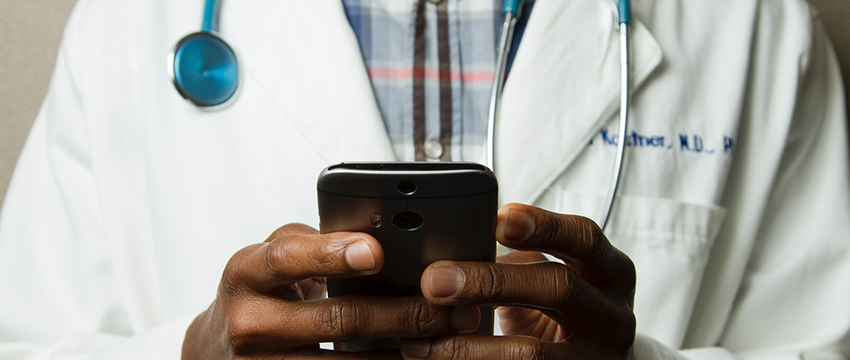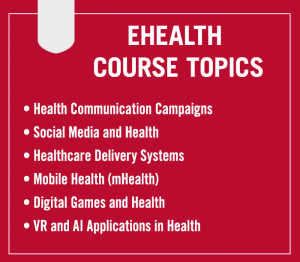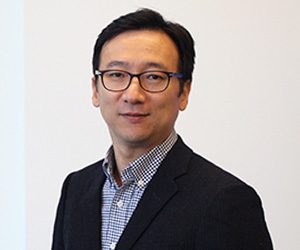eHealth class addresses intersection of healthcare and technology

eHealth class addresses intersection of healthcare and technology
There is nothing like a global pandemic to emphasize the reliance on technology. One of the sectors that is gaining momentum is healthcare, with the growth of concepts like telehealth consultations with doctors and keeping in touch with loved ones in the hospital through iPad conversations.

“The availability of this course helps to prepare students to better meet the needs of society at large and use their knowledge in advertising and public relations, public health, communication, and emerging media in a creative and collaborative manner,” Han said of the class that has been offered for several years.
The course explores the information revolution and its implications for health care and health promotion, including applications of information technologies for health care delivery, interactive communication campaigns, care/patient empowerment, health behavior change and health care delivery systems. The course reviews theories and methods of eHealth communication campaigns, issues related to design and evaluation, promising health applications and diverse media technologies.
In addition, students explore some of the more unique aspects of eHealth like delivering information through gaming, virtual reality and artificial intelligence.
Han explains: “For example, we discuss ethical and social implications of embodied artificial intelligence that is currently adopted in diagnosis and treatment of dementia and autism, and its challenges to engage in hard-to-reach populations. We also explore how artificial intelligence potentially impacts key tasks of primary care.”

Curriculum for this course was recently updated and now examine an emerging trend in patient-provider communication that adopts various technology, including video conferencing, chatbot and social media platforms and how they can potentially improve quality of supportive communication among patients, physicians, and family members.
This is a graduate-level class that appeals to students in a variety of majors including health and medical journalism, advertising and public relations, public health, communication studies and emerging media.
“Having students from a diverse perspective in health has been a great asset to the class given the multidisciplinary nature of the field itself,” Han said.
The course is expected to be offered again in summer 2021.